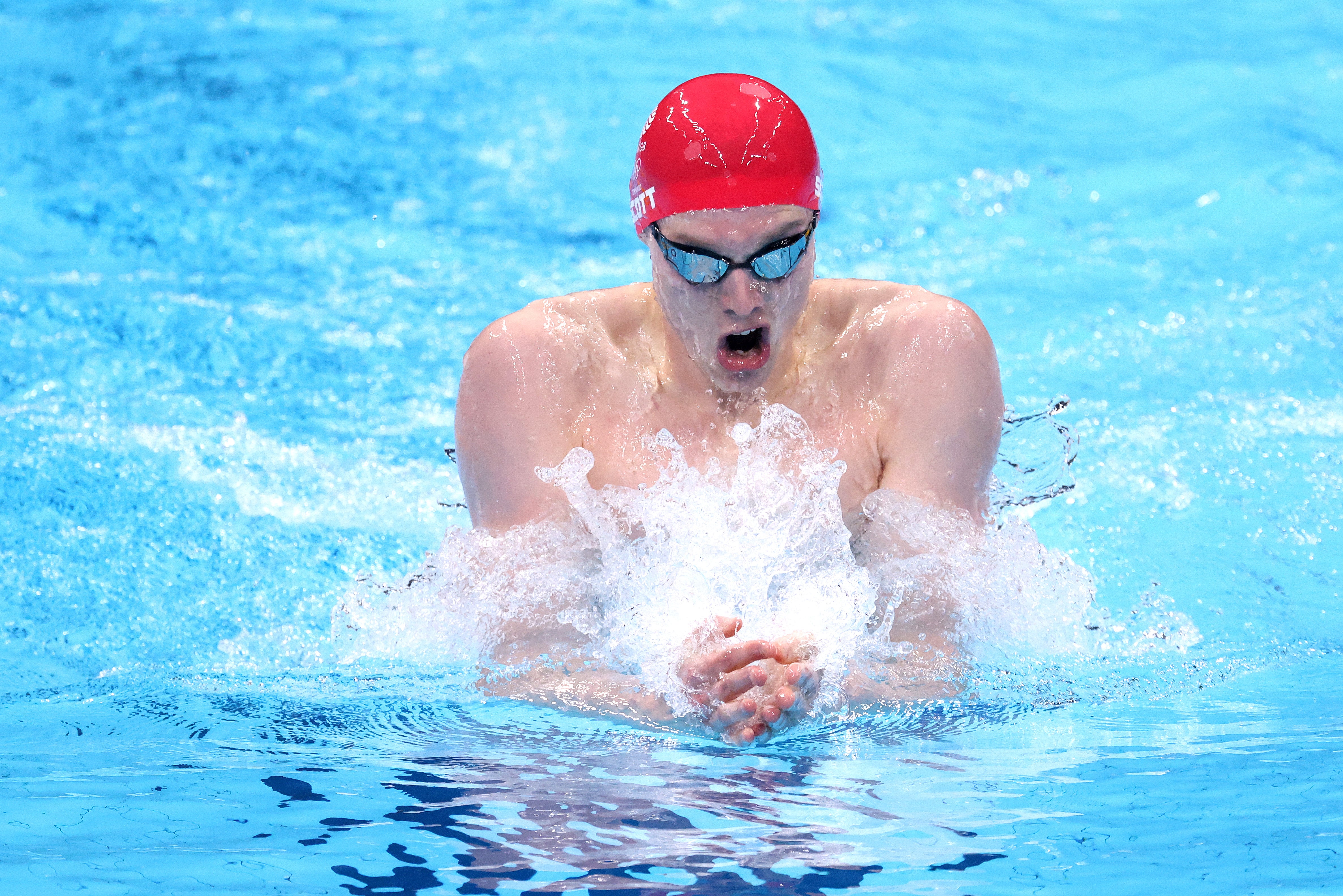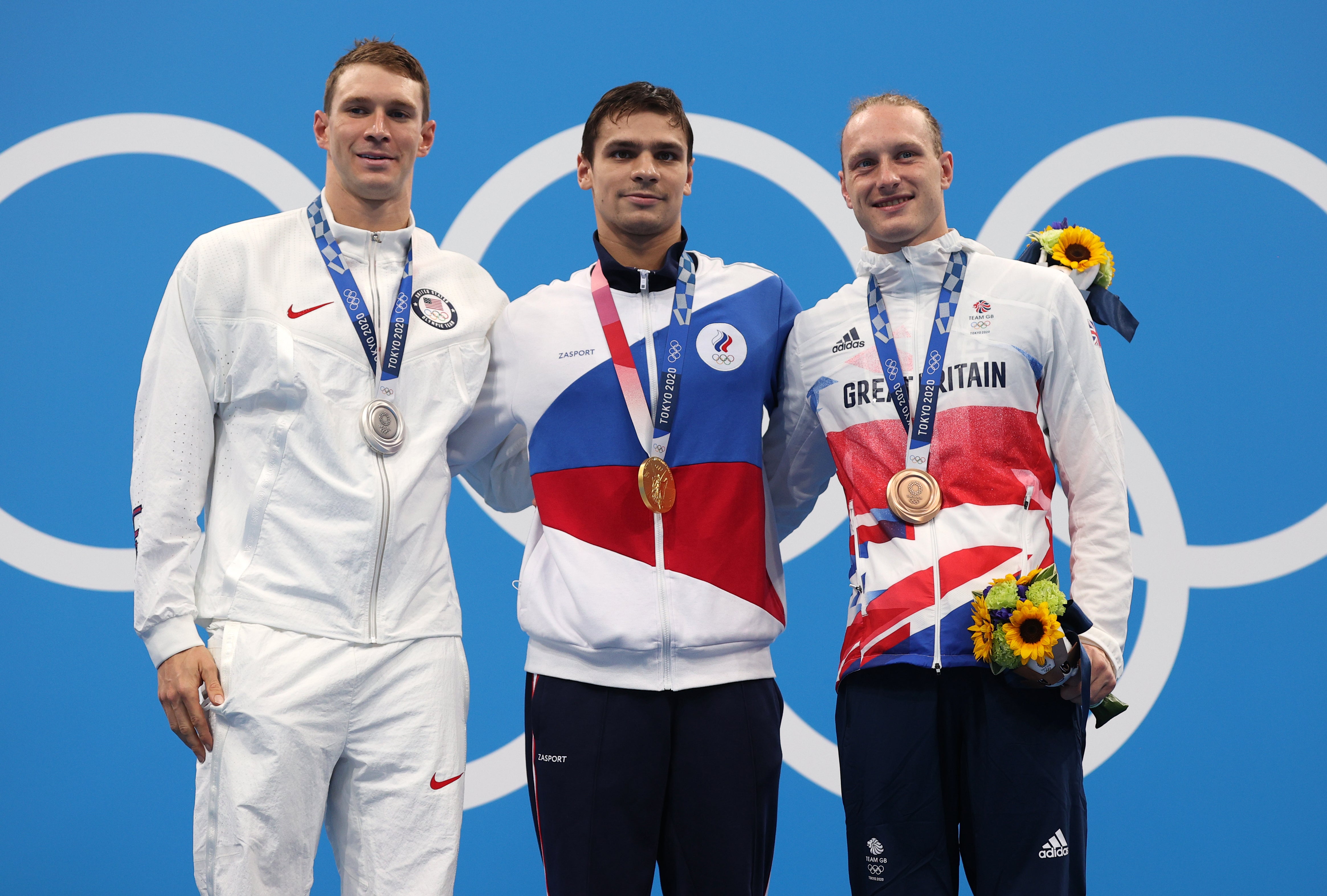Tokyo Olympics: Duncan Scott left with strange sorrow after claiming more silver for Team GB
The swimmer’s face was a picture of bitter disappointment juxtaposed with the ribbon around his neck after the men’s 200m individual medley final

Your support helps us to tell the story
From reproductive rights to climate change to Big Tech, The Independent is on the ground when the story is developing. Whether it's investigating the financials of Elon Musk's pro-Trump PAC or producing our latest documentary, 'The A Word', which shines a light on the American women fighting for reproductive rights, we know how important it is to parse out the facts from the messaging.
At such a critical moment in US history, we need reporters on the ground. Your donation allows us to keep sending journalists to speak to both sides of the story.
The Independent is trusted by Americans across the entire political spectrum. And unlike many other quality news outlets, we choose not to lock Americans out of our reporting and analysis with paywalls. We believe quality journalism should be available to everyone, paid for by those who can afford it.
Your support makes all the difference.It speaks of the splash Great Britain swimmers have made in the Ariake Aquatic Centre that the day they registered two medals, taking their tally from the pool to six, carries a sense of what might have been.
It was there, written across Duncan Scott’s face, a bitter disappointment juxtaposed with the ribbon around his neck that was holding up a weighty silver medal. Eyes red in the aftermath of his men’s 200m medley final, he wrestled with the emotions of unquestionable effort and a colour of metal he probably thinks he’s seen too much of.
Of course, all medals are won, none are lost. But Scott, 24, looked trapped in the quandary of unquestionable talent and vindicated self-belief being told he was just one notch short. They say the best places on the podium are first and third.
FOLLOW LIVE: Latest Tokyo 2020 updates
That tallies with the glee of China’s Shun Wang and Switzerland’s Jeremy Desplanches, respectively. But moreover the sorrow held by Scott. This was his fourth silver medal, having picked up two in the relay events of Rio 2016.
“I think initially, just really gutted,” he said of his emotions soon after the race. “Obviously times at this meeting, at an Olympic final, almost go out of the window for me. But I’ve had enough time to think about it a bit more and let it sink in, a massive personal best again.
“I did a world’s final, Commonwealth Games and now this one here. Still learning it quite a lot. I’m happy with that and I can hold my head high, a big PB. Just not enough again.”
No doubt it will take time to come to terms with how exceptional silver is given his ruthless quest for gold. But, eventually, he should gain comfort from the fact no other British swimmer has more than his five medals picked up in 2016 and 2021. He remains on course to become Team GB’s first Olympian to win four medals at a single Games and, even now, is one of seven British athletes to have three in one.

The freestyle finish was always going to be where Scott came into his own. Just two days ago he clocked the fifth fastest 200m leg in history to help Great Britain to gold in the relay.
There was jeopardy as he pushed out for the final 50m down in fifth – he was sixth after 100m following the backstroke – and, perhaps, a sense he had given himself too much to do. Given the quality of the field, with six national record-holders, shifting up the gears was no guarantee of improving his placing.
But the Scot picked up each length with the urgency of a man whose briefcase had opened and spilled highly classified documents onto the floor as he was rushing to catch a train. He made the train but could not bag the best seat. Wang was 0.24 seconds ahead of him.
Earlier in the day, Luke Greenbank picked up his first individual Olympic medal with bronze in the 200m backstroke, becoming the first Briton to make the podium in the event. However, the race was superseded by comments from silver-medalist Ryan Murphy who questioned the legitimacy of the race.

Victory for Russian Olympic Committee swimmer Evgeny Rylov led an exasperated Murphy to air his doubts about the fairness of the race. “At the end of the day, I do believe there is doping in swimming,” said the American.
Greenbank admitted to frustration, not least the need to “keep my mind on the race and control what I can control” in his first Olympic final. Certainly his focus was set on making a statement.
On Thursday he spoke of his desire to get in on the medal action, hoping to improve on the second-fastest time he took into the final from the semis. He did exactly that, clocking in at 1:54:72 – 0.26sec quicker – but it was not enough to improve or retain that rank.
Meanwhile, Team GB’s Molly Renshaw and Abbie Wood finished sixth and seventh in the women’s 200m, which was won by Tatjana Schoenmaker in a new world record of 2:18:95. Both she and Kaylene Corbett were South Africa’s first representatives in a swimming final since 2000, only for Schoenmaker to best the fancied American duo of Lilly King and Annie Lazor to earn her country’s first gold medal of Tokyo 2020.
Another Briton, Anna Hopkin, finished seventh in the 100m freestyle, which was won in Olympic record time by Australia’s Emma McKeon.
More glory is set to come Great Britain’s way before the pool closes at Tokyo 2020. And as the team celebrate a remarkable campaign, it is only natural some individuals in their quieter moments wonder if they could have done more for themselves. Even when they have done more than enough.
Join our commenting forum
Join thought-provoking conversations, follow other Independent readers and see their replies
Comments